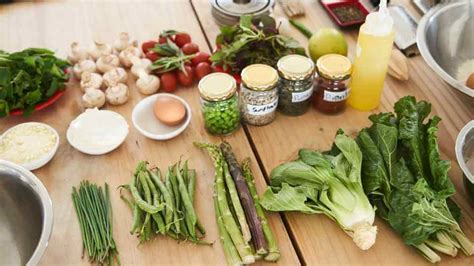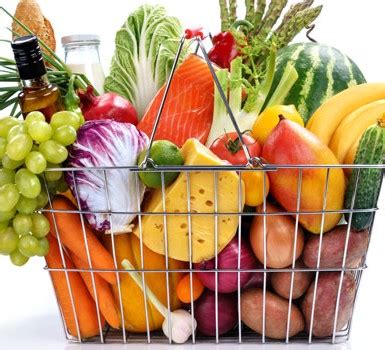How can optimal nutrition boost testosterone naturally for men’s peak performance?

Understanding Testosterone’s Vital Role
Testosterone is the primary male sex hormone, crucial for far more than just libido. It’s instrumental in maintaining muscle mass and strength, bone density, red blood cell production, fat distribution, mood, cognitive function, and energy levels. As men age, testosterone levels naturally decline, often leading to a cascade of undesirable symptoms. While various factors influence hormone balance, optimal nutrition stands out as a powerful, natural lever men can pull to support healthy testosterone production and achieve peak performance.

Key Nutrients for Testosterone Synthesis
The body requires specific vitamins, minerals, and macronutrients to synthesize testosterone efficiently. Deficiencies in these essential components can directly impair hormone production.
- Zinc: A crucial mineral, zinc plays a direct role in testosterone production and prevents the conversion of testosterone to estrogen. Excellent sources include oysters, red meat, poultry, beans, nuts, and pumpkin seeds.
- Vitamin D: Often referred to as a pro-hormone, Vitamin D is directly linked to testosterone levels. Studies show that men with adequate Vitamin D have higher testosterone. Sunlight exposure is primary, but fatty fish (salmon, mackerel), fortified dairy, and egg yolks are good dietary sources.
- Magnesium: This mineral improves free testosterone levels in the body, which is the biologically active form. It also helps reduce oxidative stress. Rich sources include leafy green vegetables, nuts (almonds, cashews), seeds, legumes, and dark chocolate.
- Healthy Fats: Cholesterol is the precursor to all steroid hormones, including testosterone. Incorporating healthy fats – monounsaturated (avocado, olive oil, nuts) and polyunsaturated (fish, flaxseeds) – is vital. Moderate intake of saturated fats from quality sources can also be beneficial.
- Vitamin K2: Emerging research suggests Vitamin K2 may play a role in testicular health and testosterone production. Found in fermented foods like natto, grass-fed dairy, and egg yolks.
- Boron: This trace mineral has been shown to increase free testosterone levels, reduce estrogen, and lower inflammation. Prunes, raisins, almonds, and avocados are good sources.

Dietary Strategies for Sustained Testosterone Boost
Beyond individual nutrients, adopting a holistic dietary pattern is key. Focus on whole, unprocessed foods that provide a broad spectrum of nutrients.
Prioritize Lean Proteins and Quality Fats
Adequate protein intake provides the amino acids necessary for overall health and muscle maintenance, which indirectly supports testosterone. Opt for lean meats, poultry, fish, eggs, and plant-based proteins. Simultaneously, ensure a consistent intake of healthy fats from sources like avocados, nuts, seeds, olive oil, and fatty fish to provide the raw materials for hormone synthesis.

Embrace Cruciferous Vegetables
Vegetables like broccoli, cauliflower, Brussels sprouts, and kale contain indole-3-carbinol (I3C), a compound that helps the body metabolize estrogen more efficiently. By promoting the excretion of less favorable estrogen metabolites, these vegetables can help maintain a healthier testosterone-to-estrogen ratio.
Incorporate Antioxidant-Rich Foods
Oxidative stress can negatively impact Leydig cells in the testes, which produce testosterone. Berries, dark leafy greens, colorful fruits, and vegetables are packed with antioxidants that combat free radical damage, protecting these vital cells.

Foods and Habits to Limit or Avoid
Just as certain foods can boost testosterone, others can hinder its production:
- Excess Sugar and Processed Foods: High sugar intake leads to insulin resistance, which is associated with lower testosterone. Processed foods often lack vital nutrients and contribute to inflammation.
- Excessive Alcohol: Chronic and heavy alcohol consumption can damage Leydig cells and increase the activity of aromatase, an enzyme that converts testosterone into estrogen.
- Soy in Excess: While moderate soy intake is generally fine, very high consumption of unfermented soy products has been linked in some studies to potential estrogenic effects, which could theoretically impact testosterone levels.
- Trans Fats: Found in many processed and fried foods, trans fats are detrimental to overall health, including hormonal balance.

Beyond Nutrition: A Holistic Perspective
While nutrition is paramount, it’s part of a larger picture. For optimal testosterone and peak performance, integrate these lifestyle factors:
- Adequate Sleep: Poor sleep significantly lowers testosterone. Aim for 7-9 hours of quality sleep per night.
- Stress Management: Chronic stress elevates cortisol, which can suppress testosterone production. Practice relaxation techniques like meditation, yoga, or deep breathing.
- Regular Exercise: Especially strength training and high-intensity interval training (HIIT), can naturally boost testosterone.
Conclusion
Achieving and maintaining optimal testosterone levels naturally is a cornerstone of men’s health and peak performance. By prioritizing a nutrient-dense diet rich in zinc, Vitamin D, magnesium, and healthy fats, while limiting processed foods, sugar, and excessive alcohol, men can lay a strong nutritional foundation for hormonal balance. Combined with adequate sleep, stress management, and regular exercise, this comprehensive approach empowers men to unlock their full potential and sustain vitality throughout life.








